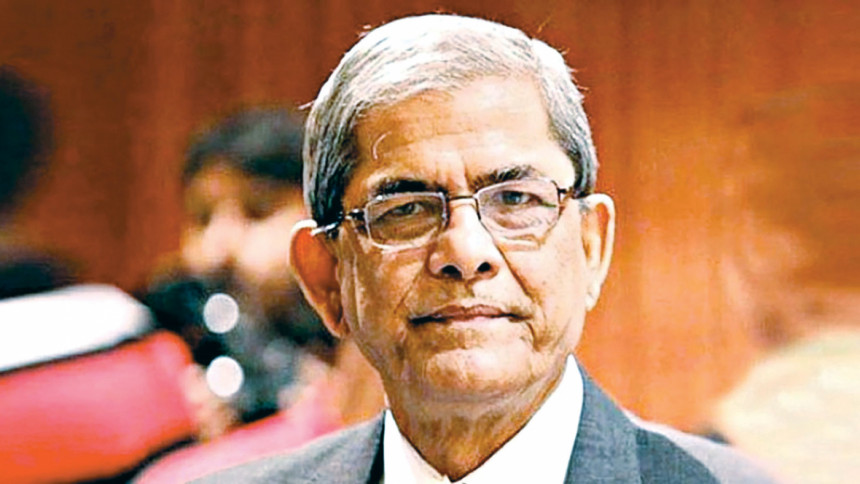Interim govt to be given reasonable, not unlimited time
The BNP wants to give the interim government reasonable but specific time to hold an acceptable election by reforming all the institutions, the party’s Secretary General Mirza Fakhrul Islam Alamgir said yesterday.
He made the remarks at a discussion with journalists organised by district and city units of BNP at a conference hall in Sylhet.
“The interim government headed by Prof Dr Muhammad Yunus is leading the country towards stability. While the country is turning around, Sheikh Hasina, residing in India, is plotting a deep conspiracy. But the conspiracy will not succeed,” Fakhrul said.
According to him, Bangladesh has to clean up all the rubbish of the past and build a truly democratic country – a task completed by the former caretaker government led by Justice Latifur Rahman in just three months before it organised a fair election.
“We want to allow the interim government a reasonable time to reform all the institutions of the state to hold an acceptable election. But the time will not be indefinite,” he said.
The BNP secretary general blamed India for the ongoing floods and criticised the neighbouring country for its position on sharing water from the common rivers with Bangladesh.
“Parts of the country have been affected by severe floods that were not witnessed in the last 15 years. This terrible flood happened because India opened their dams without any prior alert,” he said.
Fakhrul also alleged BNP leader M Ilias Ali became a victim of enforced disappearance because he stood up to India’s water-sharing policy.
“The bilateral contract of sharing transboundary river water has not been established yet. They (India) are using water aggression as a weapon. Protests against this water aggression started from Sylhet which was led by M Ilias Ali. As a result, he was forcefully disappeared,” he said.
Asked about the whereabouts of Ilias, he said, “We are not sure whether he is alive or not. We are not given any specific answer from the organisations involved but we are keeping out pressure to know what happened to all the people who faced enforced disappearance. We have earlier submitted all details to the UN. A UN investigation team arrived in Bangladesh to investigate the matter. We are hopeful.”
Fakhrul claimed around 700 BNP leaders and activists were subjected to enforced disappearance while more than 1.45 lakh cases were filed against over 6 million BNP activists in its struggle for democracy since 2012 – which he said was “unbelievable”.
BNP Chairperson Khaleda Zia was freed through the mass movement but she never bowed to the power, Fakhrul said and added now the party is battling legally several cases against its acting chairman Tarique Rahman.
Fakhrul accused Hasina of attempting to establish a one-party rule. “Sheikh Mujib was a leading figure in the liberation movement of the country and was in the government from 1972 to 1975 with people’s support. But he decided to initiate a one-party rule, formed BKSAL and dissolved all other political parties. Sheikh Hasina followed in his footsteps and finalised the preparation for a one-party system, but failed in the face of the resistance of the general students.”
The BNP secretary general promised to repeal the Digital Security Act, which is now the Cyber Security Act, if the party forms the government after the election.
“In the previous regime, people could not speak out for fear of the Digital Security Act. Journalists were suppressed by this law. Now people have regained freedom of speech,” he said.
Abdul Quiyum Chowdhury, president of BNP’s Sylhet District Unit and Miftah Siddique, acting president of Sylhet City Unit, also spoke at the discussion attended by Chairperson’s Advisers Tahsina Rusdir Luna, Dr Enamul Haque Chowdhury and Ariful Haque Chowdhury.
LondonGBDESK//



Comments are closed.